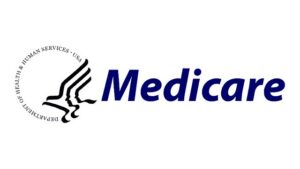When considering the financial aspect of Crisis Prevention Institute (CPI) training, prospective participants should be aware that costs can vary significantly. Prices often depend on factors such as location, provider, and class format. For instance, attending a live training session through a recognized provider can range from $300 to $600 per person. In contrast, online resources offered by organizations like CPI itself might fall within a different price bracket. Certain companies may subsidize the cost of CPI training for employees, making it more accessible for them to acquire essential skills in crisis intervention and de-escalation.
Additional expenses to keep in mind include materials and certification fees. Manuals and reference guides essential for effective learning can add to the overall cost. Organizations typically invest in these resources to enhance training, as seen with programs like Nonviolent Crisis Intervention. Moreover, renewal fees for certification can vary, often requiring renewal every couple of years, which should be factored into the ongoing commitment to ensure that skills remain current. Always review what’s included in the training fee, as some providers may bundle materials and certification into the cost, while others may charge separately.
Understanding Tuition and Fees
When considering the cost of CPI training, it’s essential to look beyond the advertised tuition rates. Schools like the American Safety and Health Institute often provide a breakdown of their fees, revealing additional costs for materials, certifications, and exam fees. For example, a training session might be priced at $150, but if you include the required manual and certification card, the total can easily rise to $200. Understanding this comprehensive pricing is vital for budget planning.
Various institutions may offer different pricing models depending on their accreditation and training format. Online platforms such as Red Cross or local community colleges may feature lower rates, but this could come at the expense of personalized instruction. Conversely, specialized training centers might charge more, offering hands-on experience and expert instructors. This variance means potential students should compare not just tuition, but also the overall value, considering factors like class size, instructional quality, and course duration.
| Institution | Tuition Rate | Additional Fees | Total Cost | Training Format |
|---|---|---|---|---|
| American Safety and Health Institute | $150 | $50 (manual and certification card) | $200 | In-person |
| Red Cross | $120 | $30 (materials) | $150 | Online |
| Local Community College | $130 | $20 (registration fee) | $150 | In-person |
| Specialized Training Center | $250 | $60 (materials and certification) | $310 | In-person |
Requirements for Enrollment in CPI Training
Enrolling in CPI (Crisis Prevention Institute) training requires meeting specific prerequisites to ensure participants are adequately prepared. Generally, individuals must be at least 18 years old and possess a high school diploma or equivalent. Some training centers may also ask for prior experience in healthcare or social services. Organizations such as hospitals or schools often sponsor their employees, highlighting the importance of continuous professional development in high-stress environments. Even those in administrative roles can benefit, as understanding de-escalation techniques can improve workplace safety.
Additionally, candidates should be familiar with the core concepts of crisis intervention and management. CPI training is designed to equip individuals with skills to handle challenging behavior effectively. Many programs offer various levels of certification, from basic to advanced, which informs applicants about their learning paths. Registration typically requires completing an application that includes demographic information and relevant professional experience. For instance, a nurse or teacher might find that their background enhances their capability to retain and apply the techniques taught in the training.


